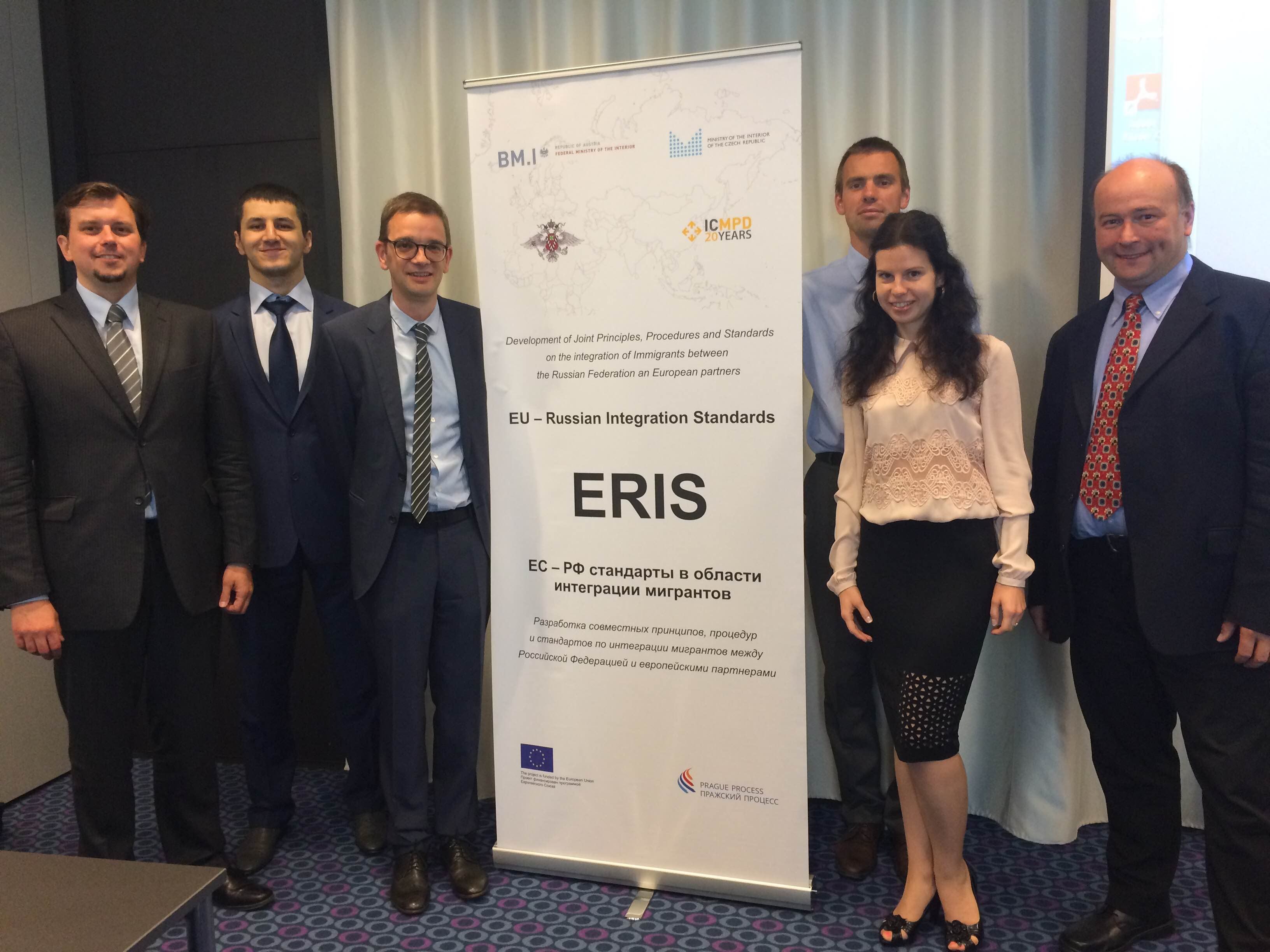In the end of June representatives of the ERIS partner states gathered in Prague to conclude the project and finalize the main project output - Joint Manual on Integration Principles, Procedures and Standards on Integration Policies
The workshop was opened by Mr Tomas Urubek from the Czech Ministry of Interior who took stock of more than 2 years project implementation. The three countries, Austria, the Czech Republic and Russian Federation underwent intense knowledge exchange in order to identify and analyse existing practices in the most important areas of integration. As an outcome of the exchange, the partners developed informative Manual that will be offered to other Prague Process countries as a point of reference for developing their national integration systems.
The issue of integration of foreigners attracts high attention and seems to continue to do so in future as the global migration tends to grow. It is significant that attention to integration is increasingly paid also by countries that so far have not been considered as typical countries of immigration. As it can be observed in the Prague Process region, many countries, traditionally regarded as sending migrants, have recently started to become target destination for substantial groups of immigrants; consequently, governments in such countries become interested in policies that would effectively address the newly emerging challenges.
The work under the ERIS project provided unique opportunity to reflect the states’ own integration systems and learn each other’s practices. Thus, representative of the Russian Federal Migration Service took note of making use of the particular outcomes of the information exchange in developing system of language and civic integration tests in the Russian Federation.
During the Workshop, the integration experts of the three ERIS states discussed in detail the draft version of the Joint Manual. As all of them agreed, the Manual constitutes a comprehensive document that is balanced in many aspects: it covers all important topics relevant for immigrants’ integration; it offers policy examples taken from different immigration countries, besides the three ERIS partner states also other ones. Experts also appreciated practical focus of the Manual which makes it useful tool for policy makers.
The Joint Manual on Principles, Procedures and Standards on Integration Policies is structured into three main sections. The first one provides with theoretical introduction into the issue of integration and integration policies: it provides with historical excurse to show when and under which circumstances integration became subject of state coordinated policies in the “traditional” immigration countries. It also gives overview of the main trends that evolved in the integration policies in recent decade. Explicitly, the section deals with links between immigration and integration to demonstrate links between the two phenomena. Last but not least, the section turns attention to role that the receiving society plays in the integration process.
The second section elaborates particular areas of integration policies considered as the most important by the ERIS countries: immigrants’ orientation, language acquisition and labour market participation. In order to stress importance of the earliest possible intervention in terms of integration, authors of the Manual –the ERIS experts- included a chapter on pre-departure integration measures in the three above described areas – orientation, language and labour market integration.
The last section is dedicated to administrative and institutional aspects of integration management. In particular it deals with issues of monitoring and evaluation of integration and integration measures. Throughout the whole Manual and particularly in this section the authors highlight that the integration policies have to take into account specific national migration, political and historical contexts.

